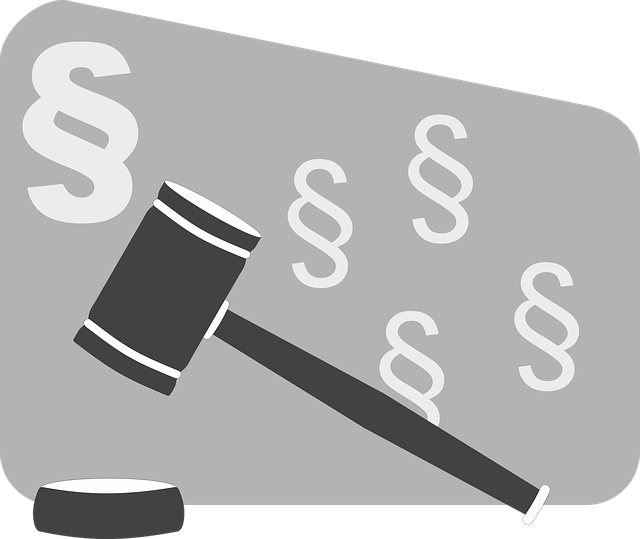Environmental crime trials present complex legal challenges involving federal and state regulations with agencies like the EPA playing a key role in prosecution. Navigating healthcare compliance legal issues is vital due to public health concerns. White-collar defense attorneys leverage environmental law expertise for robust defenses, while units focused on white collar and economic crimes use financial analysis to expose transgressions. These trials demand deep understanding of intricate environmental regulations and their interpretations, with accused individuals scrutinizing charges and challenging evidence admissibility. Successful prosecutions drive corporate conduct changes, strengthen internal controls, promote sustainability practices, and foster a culture of responsibility.
“Navigating Healthcare Compliance Legal Issues: Uncovering Environmental Crime Trials
Environmental crime trials shine a light on the intersection of law and environmental protection, particularly in healthcare sectors. This article delves into understanding these unique legal proceedings, exploring the framework that governs them. We dissect key roles within the prosecution process, while also examining challenges faced by accused entities and their defense strategies.
Furthermore, we analyze post-trial implications, emphasizing the role of these cases in fostering industry compliance and environmental stewardship.”
- Understanding Environmental Crime Trials: Legal Framework
- Key Players and Their Roles in Prosecution
- Challenges and Defenses in Court: Strategies for Accused
- Impact and Prevention: Post-Trial Implications for Compliance
Understanding Environmental Crime Trials: Legal Framework

Environmental Crime Trials are complex legal battles that navigate the intricate web of environmental regulations and their corresponding penalties. These trials often involve businesses or individuals accused of harming the environment, such as pollution, deforestation, or illegal waste disposal. The legal framework underpinning these cases is a combination of federal and state laws, with agencies like the Environmental Protection Agency (EPA) playing a crucial role in prosecution.
Understanding Navigating Healthcare Compliance Legal Issues is essential for both prosecutors and defendants. For his clients, a skilled white collar defense attorney can craft winning challenging defense verdicts by leveraging knowledge of environmental law, regulatory compliance procedures, and potential loopholes. This strategic approach ensures that the rights of all parties are protected while striving for justice in these sensitive matters.
Key Players and Their Roles in Prosecution

In environmental crime trials, several key players emerge who play pivotal roles in the prosecution process. These include prosecutors, who are responsible for presenting evidence and arguing cases against accused individuals or corporations; law enforcement officers, such as environmental agents, who investigate violations and gather critical data; and expert witnesses, who offer specialized knowledge to help interpret complex environmental science and regulations. Navigating healthcare compliance legal issues is a significant aspect of these trials, as many environmental crimes also involve public health concerns.
The role of white collar and economic crimes units within law enforcement and prosecutors’ offices is crucial, especially in cases that span across the country. Their expertise in financial analysis and complex investigation techniques aids in unraveling the economic motivations behind environmental transgressions. These unprecedented track records in prosecuting such crimes send a strong message: environmental violations will not be tolerated, and justice will be served with rigour.
Challenges and Defenses in Court: Strategies for Accused

Navigating Environmental Crime trials presents a unique set of challenges for accused individuals and organizations. Beyond the evidentiary hurdles, defendants often face complex legal issues stemming from the intricate nature of environmental regulations. Understanding these regulatory frameworks and their interpretations is crucial for crafting an effective defense strategy. A comprehensive approach involves scrutinizing the specific charges, investigating potential violations during all stages of the investigative and enforcement process, and identifying loopholes or ambiguities in the applicable laws.
Strategic defenses may include challenging the admissibility of evidence, questioning the integrity of data collection methods, and arguing against the applicability of strict liability provisions. A robust defense can also involve highlighting good faith efforts to comply with environmental regulations, particularly in cases involving white-collar offenses. Ultimately, the goal is to secure a complete dismissal of all charges or significantly mitigate the consequences, ensuring that the rights of the accused are protected while holding perpetrators accountable for their actions.
Impact and Prevention: Post-Trial Implications for Compliance

Environmental crime trials play a pivotal role in holding individuals and corporations accountable for their actions that harm the environment. These legal proceedings not only deliver justice but also serve as powerful deterrents, sending a clear message to potential offenders about the severe consequences of environmental misconduct. Post-trial, the implications extend far beyond punishment; they significantly influence navigating healthcare compliance legal issues.
The outcomes of these trials can drive substantial changes in corporate conduct and regulatory frameworks across the country. By addressing white-collar and economic crimes, successful prosecutions encourage businesses to strengthen their internal controls and embrace sustainability practices. Moreover, they stimulate collaboration between industries, the philanthropic and political communities, and regulatory bodies to foster a culture of environmental responsibility. This collective effort is crucial in preventing future environmental crimes and ensuring that justice is not only served but also contributes to a healthier planet.
Environmental crime trials play a pivotal role in navigating healthcare compliance legal issues, ensuring accountability for those who harm our planet. By understanding the intricate legal framework, identifying key players, and recognizing challenges and defenses, we can strengthen environmental protection efforts. Post-trial implications highlight the importance of these cases in fostering better practices and compliance, ultimately leading to a healthier, more sustainable future.






